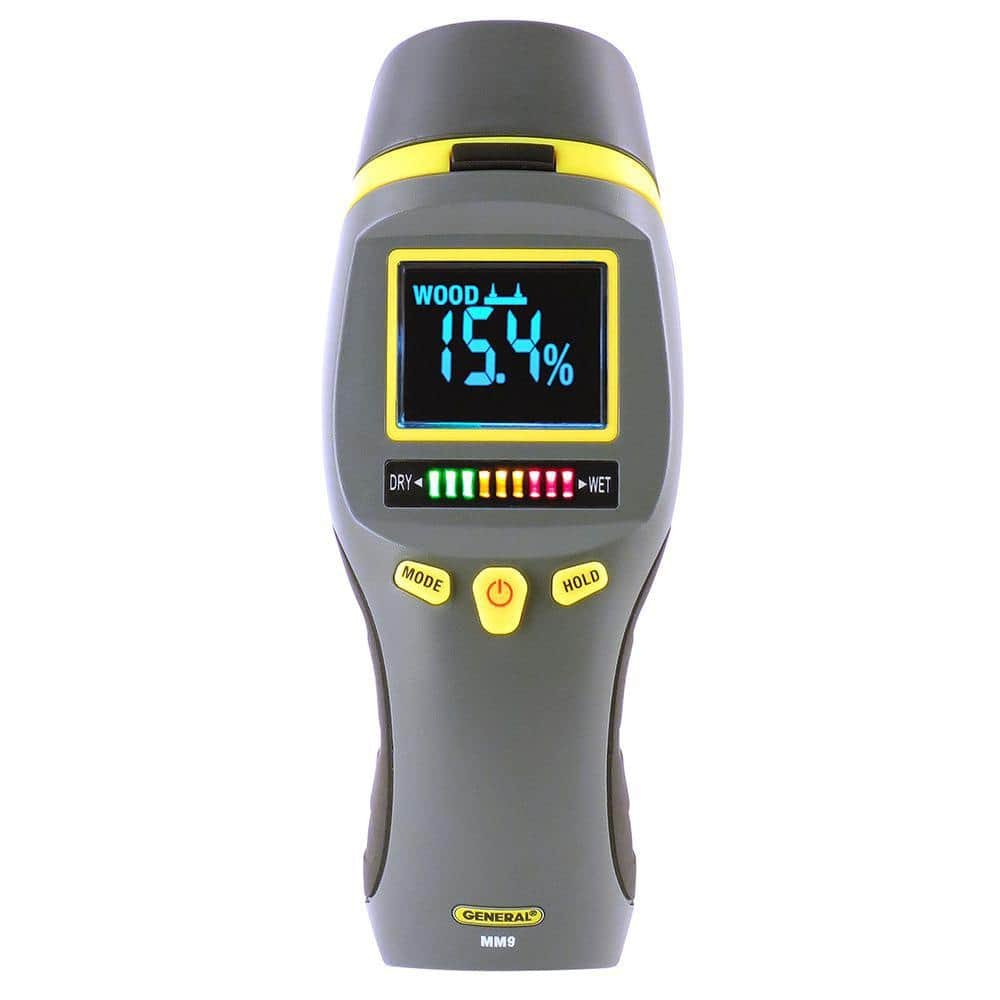Moisture Meter Reviews: Contrasting the most effective Versions for Professional and DIY Use
Moisture Meter Reviews: Contrasting the most effective Versions for Professional and DIY Use
Blog Article
The Ultimate Overview to Dampness Meters: A Comprehensive Summary and Just How They Can Conserve You Money
Moisture meters offer as vital devices in discovering and keeping track of moisture material in products, helping in preventing expensive damages and making certain the high quality of products. Understanding the subtleties of various types of moisture meters, their applications, and the prospective cost-saving advantages they provide can be a game-changer for businesses and experts alike.
Kinds of Moisture Meters
One typical kind is the pin-type moisture meter, which determines the electric resistance in between two pins inserted right into a material. Pinless wetness meters, on the other hand, use electromagnetic sensor plates to scan a larger location without creating damages to the product's surface.

Additionally, there are additionally specialized wetness meters created for specific products like dirt, grain, or hay. These meters offer accurate dampness analyses customized to the special residential properties of the product being tested. Infrared dampness meters measure the thermal properties of a product to establish its moisture content non-invasively, making them valuable for applications where pin or pinless meters may not appropriate. Recognizing the various kinds of moisture meters available can assist markets choose the most appropriate device for their specific dampness dimension needs.

Advantages of Using Wetness Meters
Moisture meters provide vital benefits in precisely examining and keeping track of moisture levels in varied materials and settings. One of the main benefits of utilizing dampness meters is the avoidance of prospective damage triggered by excess dampness.
Additionally, utilizing wetness meters can result in increased energy effectiveness. By determining locations with high dampness levels, such as leaks or bad insulation, modifications can be made to enhance energy preservation and reduce utility prices. In farming settings, wetness meters play a vital role in optimizing crop yields by enabling farmers to monitor soil dampness degrees and make educated irrigation decisions. In general, the benefits of using wetness meters span across numerous sectors, providing cost-efficient services and promoting far better quality assurance methods.
Exactly How to Choose the Right Dampness Meter
When picking a moisture meter, it's vital to make certain that the meter is appropriate for the particular product you will be testing. Different products have varying electrical properties that can impact wetness analyses, so picking a meter developed for your material is vital for exact outcomes. By thoroughly examining these factors, you can choose a wetness find out this here meter that fulfills your requirements and offers accurate wetness measurements for your tasks.
Appropriate Techniques for Wetness Meter Use

Cost Savings Through Moisture Meter Applications
How can the tactical use of dampness meters lead to significant price financial savings across numerous sectors? In the farming market, moisture meters aid in identifying the optimum time for collecting plants, protecting against over-drying link or excess wetness that can affect the final product's quality.
Likewise, in construction, dampness meters aid avoid costly problems by identifying wetness levels in building materials, such as timber or concrete, which can cause architectural problems otherwise resolved immediately. By recognizing problem locations early on, contractors can take restorative measures to avoid comprehensive repairs or replacements, eventually conserving money and time.
Furthermore, in the food processing sector, moisture meters are crucial for monitoring product top quality and guaranteeing conformity with safety and security laws. By properly gauging moisture content in food products, manufacturers can avoid putridity, preserve freshness, and reduce waste, resulting in substantial expense financial savings. On the whole, the calculated application of dampness meters is a valuable financial investment that can result in substantial cost reductions and enhanced effectiveness throughout different markets.
Verdict
In final thought, dampness meters are valuable tools for measuring and finding dampness levels in different products. By making use of the appropriate moisture meter and adhering to correct techniques, individuals can efficiently avoid expensive problems created by excess dampness.
Wetness meters serve as indispensable devices in identifying and checking moisture web content in products, aiding in avoiding expensive damages and ensuring the top quality of items. Infrared dampness meters determine the thermal residential properties of a material to establish its dampness material non-invasively, making them valuable for applications where pin or pinless meters may not be appropriate.Wetness meters offer indispensable benefits in properly monitoring and examining wetness levels in varied materials and environments. In farming settings, dampness meters play an important function in maximizing crop yields by making it possible for farmers to monitor soil moisture degrees and make notified watering decisions.In verdict, wetness meters are important tools for spotting and gauging wetness degrees in various products.
Report this page